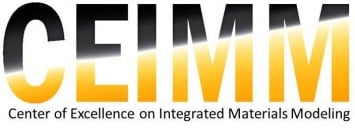2013 DURIP Decisions Announced
Professor Kevin Hemker, Professor Somnath Ghosh, and their colleagues will receive a 2013 Defense University Research Instrumentation Program (DURIP) grant from the Air Force Office of Scientific Research (AFOSR) for the acquisition of capital equipment that revolutionizes existing facilities in three key areas: multi-scale materials characterization, multi-scale materials modeling, and data management. These areas are central to interdisciplinary research activities in two new Hopkins centers, CEIMM and HEMI, and lie at the core of the needed materials innovation infrastructure outlined in the National Academy of Engineering report on Integrated Computational Materials Engineering (ICME) and the White House Materials Genome Initiative (MGI) for Global Competitiveness.
Capital Equipment to Integrate 3D Materials Characterization, Modeling and Data Management
Enabled by rapid advances in both computational capabilities and 3D characterization techniques, ICME and MGI seek to employ multi-scale materials modeling to accelerate the introduction of new materials into engineering applications. Key to the realization of the ICME/MGI paradigm is the necessary development, and integration, of 3D multi-scale modeling with 3D multi-scale experimental observations. The co-location of two large DoD multidisciplinary centers, focused on ICME/MGI principles and led by JHU researchers, provides a unique environment in which to promote this integration. The equipment purchases outlined in this DURIP will provide state-of-the-art facilities with which to conduct ICME/MGI research. Pushing chemical and orientation image mapping to the nanoscale with HAADF and NanoMEGAS will enhance studies of interfacial chemistry, intra and inter-granular plasticity, crack nucleation, and delamination. Adding a broad ion beam to the tri-beam system will enlarge the range and volume of materials (metals, polymers, ceramics) that can be milled and characterized at the micro-scale. Enhanced computational resources will facilitate integration of materials researchers with broader high performance computing and data management communities at Hopkins. Last but not least, conducting CEIMM and MEDE activities in these facilities will allow us to educate the next generation DoD materials workforce.


